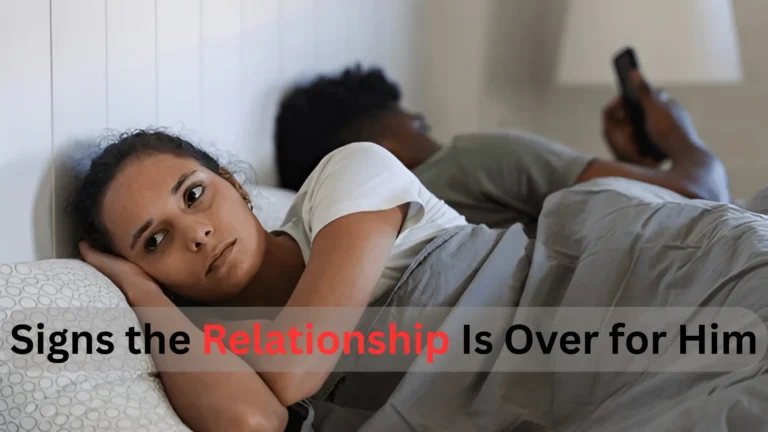Signs He Wants To Control You

Controlling behavior in relationships involves one partner exerting power over the other, often undermining their autonomy and emotional well-being. Understanding the difference between healthy and unhealthy dynamics is crucial for fostering respectful relationships.
- What is controlling behavior?: Actions that limit a partner’s freedom, decision-making, or self-expression, often disguised as care or concern.
- Impact on relationships: Leads to emotional distress, loss of self-esteem, and imbalanced power dynamics.
- Healthy vs. unhealthy dynamics: Healthy relationships are built on mutual respect and trust, while unhealthy ones involve manipulation, fear, or coercion.
- Why it matters: Recognizing controlling behavior early can prevent long-term emotional harm and promote healthier connections.
2. Signs of Manipulation in Men
Manipulation involves tactics to influence or control a partner’s thoughts, feelings, or actions, often subtly. While not exclusive to men, these signs are common in manipulative male partners.
- Guilt-tripping: Making you feel responsible for their emotions or actions (e.g., “If you loved me, you’d do this”).
- Silent treatment: Withholding communication to punish or control you.
- Flattery with ulterior motives: Excessive compliments to gain trust or compliance.
- Shifting blame: Making you feel at fault for their mistakes or behavior.
- How to spot early: Look for patterns of emotional pressure or inconsistent behavior that makes you doubt yourself.
3. Toxic Boyfriend Warning Signs
A toxic boyfriend exhibits behaviors that harm your emotional, mental, or physical well-being, often creating a draining relationship dynamic.
- Constant criticism: Belittling your appearance, choices, or personality.
- Disrespecting boundaries: Ignoring your need for personal space or time.
- Emotional volatility: Unpredictable mood swings that keep you on edge.
- Isolation tactics: Discouraging you from seeing friends or family.
- Impact: Leads to anxiety, lowered self-worth, and a sense of entrapment.
4. Early Red Flags of Control
Early signs of controlling behavior may be subtle but can escalate if ignored. Recognizing these red flags early is key to protecting yourself.
- Excessive checking-in: Constantly asking about your whereabouts or who you’re with.
- Over-involvement in decisions: Insisting on controlling small choices, like what you wear or eat.
- Jealousy disguised as care: Questioning your interactions with others under the guise of concern.
- Rushing the relationship: Pushing for quick commitment to establish control.
- Subtle criticism: Comments that undermine your confidence, often framed as “jokes.”
5. Emotional Manipulation Signs
Emotional manipulation involves tactics that exploit your feelings to control or influence your behavior, often leaving you confused or self-doubting.
- Love bombing: Overwhelming you with affection to gain control early on.
- Victim-playing: Portraying themselves as the victim to avoid accountability.
- Gaslighting: Making you question your reality or memory (see section 6).
- Emotional blackmail: Using threats or ultimatums to enforce compliance.
- Effects: Causes self-doubt, anxiety, and dependency on the manipulator.
6. Gaslighting Signs in Relationships
Gaslighting is a form of psychological manipulation where the abuser makes you question your reality, memory, or sanity, often to maintain control.
- Denying events: Claiming something didn’t happen when you know it did.
- Minimizing your feelings: Dismissing your emotions as overreactions.
- Twisting the truth: Rewriting events to make you doubt your memory.
- Blaming you for their actions: Suggesting their behavior is your fault.
- Impact: Leads to confusion, loss of confidence, and reliance on the abuser’s version of reality.
Why Do Guys Grow Beards After A Breakup
7. Psychological Abuse Signs
Psychological abuse involves non-physical behaviors that harm your mental and emotional health, often overlapping with manipulation and control.
- Verbal aggression: Insults, yelling, or demeaning language.
- Humiliation: Publicly or privately shaming you to erode self-esteem.
- Control over finances or decisions: Restricting your access to money or choices.
- Threats or intimidation: Using fear to enforce compliance.
- Long-term effects: Can lead to anxiety, depression, or post-traumatic stress.
8. Is He Controlling or Caring?
Distinguishing between controlling and caring behavior can be challenging, as controlling actions are often masked as concern.
- Caring behavior: Encourages your independence, respects boundaries, and supports your goals.
- Controlling behavior: Limits your freedom, questions your choices, or insists on involvement in every decision.
- Key test: Caring partners prioritize your well-being without needing to control outcomes; controlling partners prioritize their own needs.
- Examples: Caring is asking if you’re okay after a tough day; controlling is demanding to know every detail of your day.
- How to clarify: Reflect on whether their actions make you feel empowered or restricted.
9. Possessive Boyfriend Behavior
Possessiveness reflects an unhealthy need to “own” or control a partner, often mistaken for love or protectiveness.
- Excessive jealousy: Overreacting to your interactions with others.
- Monitoring communication: Checking your phone, emails, or social media.
- Isolating you: Discouraging time with friends or family to keep you dependent.
- Claiming ownership: Referring to you as “mine” in a controlling way.
- Impact: Creates a sense of suffocation and erodes personal freedom.
10. Unhealthy Relationship Control Signs
Unhealthy control in relationships manifests through patterns that undermine equality, trust, and mutual respect.
- Lack of autonomy: Feeling unable to make decisions without their approval.
- Constant monitoring: Tracking your location, activities, or social interactions.
- Unequal power dynamics: One partner dominates decisions or conversations.
- Fear of conflict: Avoiding disagreements due to fear of their reaction.
- Breaking free: Recognizing these signs is the first step to seeking help or setting boundaries.






